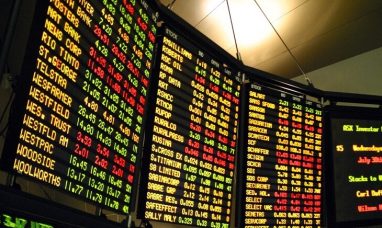The U.S. stock market is experiencing a bounce-back on Monday, with major indexes rising after the holiday-season downturn. At the forefront of this rally are tech stocks, which have been driving market momentum, especially those companies involved in the booming artificial intelligence (AI) sector.
The S&P 500 climbed 1% in afternoon trading, marking its second consecutive gain following a five-day losing streak, its longest since April. The Dow Jones Industrial Average added 249 points, or 0.6%, while the Nasdaq composite surged by 1.5%.
Nvidia (NASDAQ:NVDA), a key player in AI and graphics processing, saw a 4.6% increase in its stock price ahead of a highly anticipated speech by CEO Jensen Huang at the CES convention in Las Vegas later in the day.
The AI Buzz: Nvidia and Other Tech Stocks Surge
Nvidia, along with other AI-focused tech stocks, continues to climb despite concerns that their stock prices may be inflated. The hype surrounding AI technologies has been growing rapidly, with experts and company leaders alike touting the vast potential of the industry. However, some critics warn that the current valuations of these companies may be unsustainable, possibly leading to a market bubble.
Despite the uncertainty, Microsoft (NASDAQ:MSFT), another giant in the AI space, is committed to making significant investments in the sector. Microsoft Vice Chair Brad Smith announced that the company plans to invest approximately $80 billion in AI-enabled data centers this fiscal year. Smith emphasized that AI is the “biggest opportunity to harness new technology to invigorate the nation’s economy” since the advent of electricity. Microsoft shares saw a 1.4% increase in response to this announcement.
Uber and U.S. Steel: Strong Moves in the Market
Tech stocks weren’t the only ones experiencing gains. Uber Technologies (NYSE:UBER) rose by 2.7% after the company revealed plans to accelerate its stock buyback program, spending $1.5 billion out of a previously announced $7 billion initiative. Uber’s CFO, Prashanth Mahendra-Rajah, mentioned that the company believes its stock is undervalued in comparison to its robust business performance.
In a different sector, U.S. Steel (NYSE:X) surged by 4.8% following a federal lawsuit filed against the U.S. government. U.S. Steel and its Japanese counterpart, Nippon Steel (TSE:5401), challenged President Biden’s decision to block a $15 billion merger. The lawsuit claims that the move was politically motivated and infringed upon the companies’ due process rights. This legal battle has sparked significant attention in the steel and industrial sectors.
What’s Ahead: Economic Data and Fed’s Impact on Stocks
Looking ahead, this week offers a packed calendar of potentially market-moving events. On Tuesday, the latest figures on job openings and the health of the services industry will be released. Wednesday will bring the Federal Reserve’s minutes from its latest meeting, during which they decided to cut interest rates for the third consecutive time. Despite the rate cuts, the Fed signaled that fewer reductions might come in 2025.
The week will conclude with the highly anticipated jobs report on Friday, along with a consumer sentiment update. Despite high interest rates imposed to curb inflation, the U.S. economy has shown remarkable resilience. A report on Monday revealed a surge in business confidence, particularly within the services sector, with growth reaching its highest level in nearly three years.
Interest Rates and Bond Yields: Implications for the Stock Market
The bond market has seen rising Treasury yields, which could present a challenge for stock prices. As yields climb, investors may find bonds more attractive, potentially pulling funds away from equities. At Morgan Stanley, strategist Michael Wilson pointed out that U.S. stocks perform best when the yield on the 10-year Treasury is between 4.00% and 4.50%. The yield currently stands at 4.61%, slightly up from 4.60% at the end of last week.
While tech stocks and AI companies are currently in the spotlight, broader economic factors, such as bond yields and inflation, could impact market dynamics in the weeks ahead.
Featured Image – Freepik






